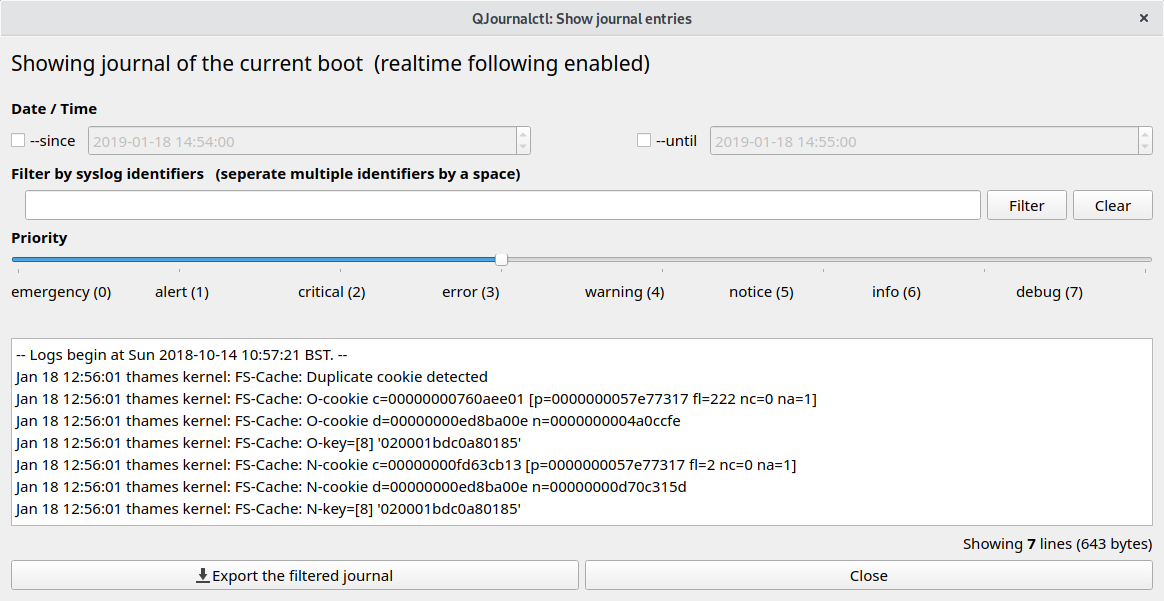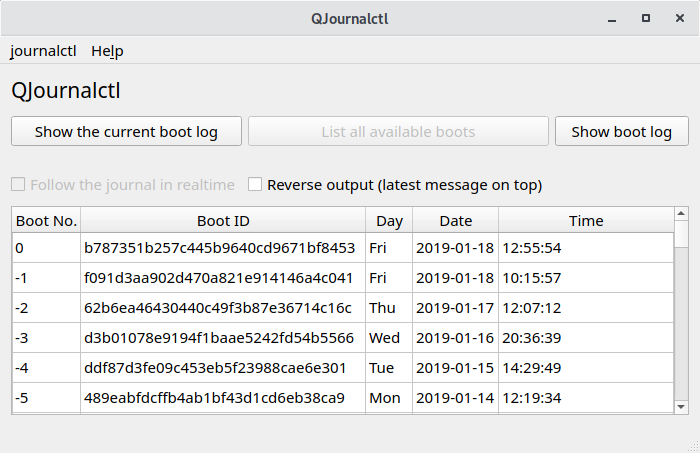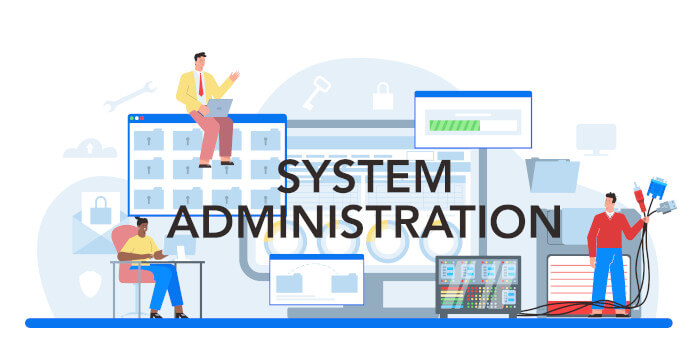Last Updated on May 28, 2022
In Operation
Here’s an image of QJournalctl showing the journal entries of the current boot.

The journal stores a large amount of information. This can make it harder to find what you’re looking for. One of the most important features of journalctl is its filtering options. And QJournalctl lets you access that filtering. You can filter the entries by date / time, and by sysyslog identifiers.
The journal implements the standard syslog message levels. In order of highest to lowest priority, these are:
- 0: emergency
- 1: alert
- 2: critical
- 3: error
- 4: warning
- 5: notice
- 6: info
- 7: debug
These priority settings are accessed in QJournalctl with a simple slider.

While you will commonly want to display the information from the current boot, there are certainly times when previous boots are helpful. The journal can save information from many previous boots, so journalctl can be made to display information easily. And QJournalctl also offers the ability to display them.
Next page: Page 3 – Other Features
Pages in this article:
Page 1 – Introduction / Installation
Page 2 – In Operation
Page 3 – Other Features
Page 4 – Summary

I always appreciate in your reviews that you try out the software and display relevant screenshots which can be critical in deciding the usefulness of some software item.
I would have thought that in the listing of all messages (and yes you pointed out that you can filter by log level) that critical messages should be in bright red, alerts in yellow etc in order to draw attention to them. And sometimes in tracking critical/alerts priority warnings it is useful to see the lower priority messages before them because they can be a clue as to why the serious incident occurred.